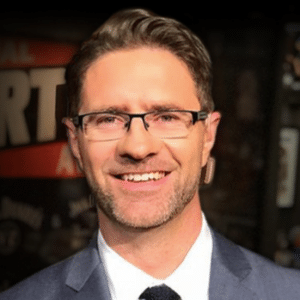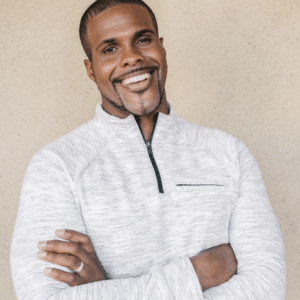You’ve probably experienced those cringe-worthy moments when a speaker completely misses the mark at an event. Whether they’re fumbling with tech issues or delivering content that doesn’t resonate with the audience, these situations are entirely preventable. A well-structured pre-event speaker briefing serves as your insurance policy against such mishaps. Let’s explore the essential elements that’ll help you transform potentially awkward situations into powerful, memorable presentations.
Logistical Requirements and Technical Setup
Guaranteeing a smooth and successful event requires meticulous planning and clear communication with the speaker and event staff. You need to safeguard that all details are covered, from travel arrangements to technical setup. Working with keynote speaker agencies from both the USA and UK ensures access to world-class business leadership talent.
Key logistical elements to focus on include:
- Travel and Accommodations: Confirm travel details and accommodations with the speaker, including transportation, hotel rooms, and special requests.
- Event Schedules and Facilities: Provide a detailed event schedule, including time slots, breaks, and backstage facilities.
- Technical Support: Identify and confirm A/V equipment needs, setup instructions, and verify technical support personnel are available during the event.
Understanding the audience demographic is crucial for tailoring the speaker’s message effectively Audience Demographic Considerations. This attention to detail helps minimize last-minute issues and secures a professional experience for the speaker and your audience.
Audience Demographics and Event Objectives
When planning a corporate event, understanding your audience demographics is essential for creating an engaging and effective experience. You need to ponder the age range, gender distribution, geographical location, income level, and education level of your attendees. These factors influence how you tailor your event content and marketing strategies. Working with a Corporate Speaker Agency ensures your speaker selection aligns perfectly with your audience composition.
Key demographics to focus on:
- Age: Recognize that different age groups have varied interests and learning styles.
- Gender: Acknowledge gender preferences and behaviors to shape marketing approaches and event programming.
- Geographical Location: Understand regional cultural norms, interests, and venue accessibility to aid in event planning and venue selection.
To further tailor your event experience, leveraging data analytics can help you understand specific attendee preferences and behaviors, enabling you to create more personalized and engaging experiences.
Content Customization and Message Alignment
Once you have a solid grasp of your audience’s demographics, the next step is to focus on ensuring that the content delivered at your corporate event is tailored to align perfectly with their interests and needs. This involves more than just generic topics; it requires deep customization to resonate with your attendees.
Key elements to deliberate in customizing your content include:
- Identifying key themes that resonate with the audience, making your message more impactful.
- Incorporating company-specific examples or case studies to enhance relevance and impact.
- Aligning the message with the overarching theme of the event to create a cohesive narrative.
Industry thought leaders can provide valuable insights and unique perspectives that elevate the overall quality of your event presentation. Tailoring content effectively also involves establishing rapport by acknowledging the audience’s challenges and aspirations, which helps in creating a more personalized and engaging experience.
Pre-Event Speaker Assessment
A thorough pre-event speaker assessment forms the foundation of any successful corporate event. You’ll need to evaluate your potential speaker’s communication style, cultural adaptability, and subject expertise to guarantee they’ll meet your audience’s expectations. Additionally, it’s crucial to establish clear objectives for the event and align your speaker’s content with those goals. Conducting a follow-up through postevent speaker evaluation metrics will help you measure the effectiveness of the presentation and gather constructive feedback from attendees. This ongoing assessment not only ensures continuous improvement for future events but also reinforces the importance of selecting speakers who truly resonate with your audience.
Start by reviewing their track record with similar events and audiences. Check if they’ve handled comparable group sizes and corporate environments. You should assess their ability to customize content and adjust their message to your organization’s goals.
Don’t forget to ponder practical aspects like their experience with international audiences if you’re hosting a global event. Review their technical requirements and make certain they align with your venue’s capabilities. It’s also indispensable to verify their emergency backup plans and versatility in case of last-minute changes. Working with a dynamic event team can help ensure thorough evaluation of speakers across various sectors and specialties.
Initial Speaker Availability Check
Before moving forward with any speaker selection, you’ll need to confirm their availability for your event date. Start by contacting your speaker bureau with several potential dates, as flexibility increases your chances of securing your preferred speaker. CSA’s direct access to their roster of 1000+ speakers enables quick availability checks.
You’ll want to contemplate time zone differences, especially for international events, and factor in travel time to and from your venue. Remember that popular speakers often book 6-12 months in advance, so early planning is indispensable.
If your first-choice speaker isn’t available, CSA can quickly suggest qualified alternatives from the same category who match your event requirements and budget constraints.
With expertise spanning from business leadership to wellness topics, our diverse speaker roster ensures you’ll find the perfect match for your event objectives.
Final thoughts
You’ll find that a thorough pre-event speaker briefing makes all the difference in your event’s success. By covering logistics, understanding audience needs, aligning content, and verifying speaker readiness, you’re setting the stage for an impactful presentation. Don’t forget to confirm speaker availability early and maintain clear communication throughout the process. Your attention to these essential elements will guarantee a polished, professional delivery.
Corporate Speaker Agency (CSA) is a premier international speaker bureau with offices in the UK and Las Vegas, connecting organizations with world-class keynote speakers and talent since 2015. Our team of seasoned event professionals brings over two decades of industry experience to curate exceptional speaking engagements for Fortune 500 companies, government agencies, and educational institutions worldwide.
As pioneers in conference speaker sourcing across the USA and UK, we represent an elite roster of industry experts spanning business, technology, innovation, leadership, and entertainment. Through CSA and our sister company Corporate Entertainment Agency, we provide comprehensive talent solutions including keynote speakers, motivational experts, entertainers, and event facilitators.
Our commitment to excellence and deep understanding of client needs has established us as a trusted partner in creating impactful corporate events, from high-stakes conferences to intimate team-building workshops. With access to thousands of distinguished speakers and entertainers, we pride ourselves on delivering precisely matched talent for any occasion and budget.



















